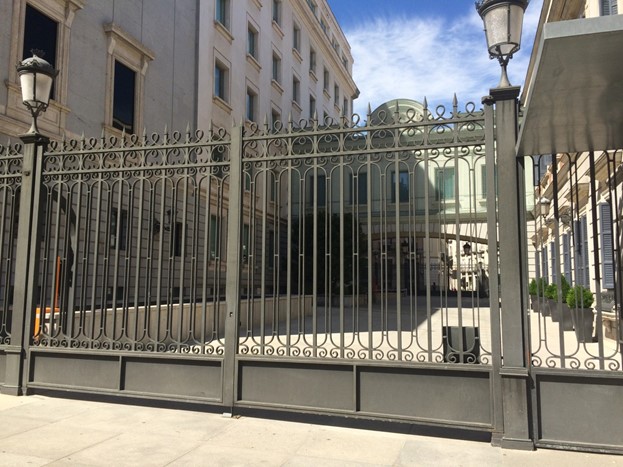

Christian Rosen
Teacher and Researcher at the Institute for Sociology
Technical University of Darmstadt
This contribution examines the social production of places of political practice in the parliament buildings of Berlin and Madrid and beyond. It is based on the assumption that space is first produced in its meanings for actors through social interactions, and in a second step can also have an effect on their practice. Based on Bourdieu’s theory of political fields and the central concepts of habitus, capital and field, parliamentarians and other field participants were accompanied and questioned during longer periods of field observation. The aim was to find out how they use places in their political practice and what field-relevant meanings they simultaneously assign to these places.
For the political practice of actors in national political fields, the parliament represents the most important and central place of their activities in the capitals and thus influences their everyday working life to a high degree. The focus of this contribution is on parliaments as socially constructed places and their significance for the actions of field participants in national political fields. First of all, the question is asked:
What forms of social production of places in and around the parliament by the actors can be observed?
While other works focus on the parliamentary hall, this contribution deals with places such as the office, exclusive clubs and public spaces in and around the parliament and their significance. It can be shown how the actors provide places themselves with meanings for the national political field, but also how institutionalised meanings can influence the actions of actors in specific places.
The second question to which this contribution is devoted is:
What significance does the parliament have for the places of political practice in the capitals and their material form and arrangement?
Parliaments are central places in the everyday life of the actors. However, they are not the only places of importance for political practice. Where other places are located in relation to the parliament and how they are arranged plays an important role in their use by the actors. Offices of members of parliament, event rooms of lobbyists and the seats of the large media houses are examples of these places. Their distance from the parliament, their size, equipment or architecture are described by the actors as aspects of practical relevance. Other contributions have already conceptualised capitals as planned urban developments or architectural plans. This contribution examines in particular the parliament in the context of its urban environment and on the basis of the practice of relevant actors from the national political field. It thus enables a new view focused on its users, the national political fields.
This contribution builds on the findings of ethnographic field research in the European capitals Berlin and Madrid. A total of 45 actors were interviewed and some of them were accompanied in their everyday professional practice for a longer period of time.